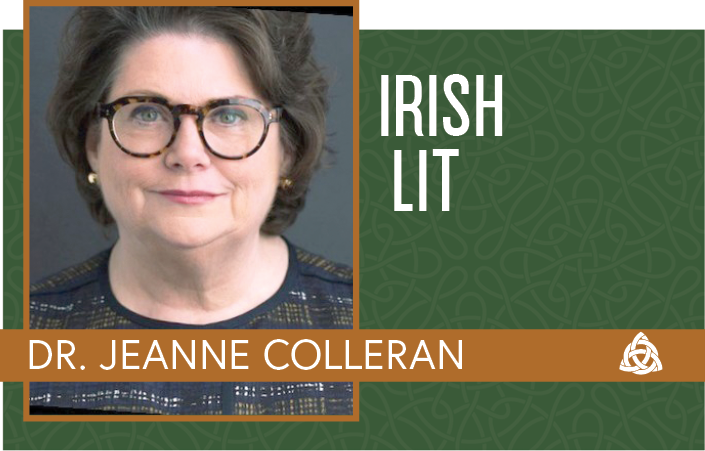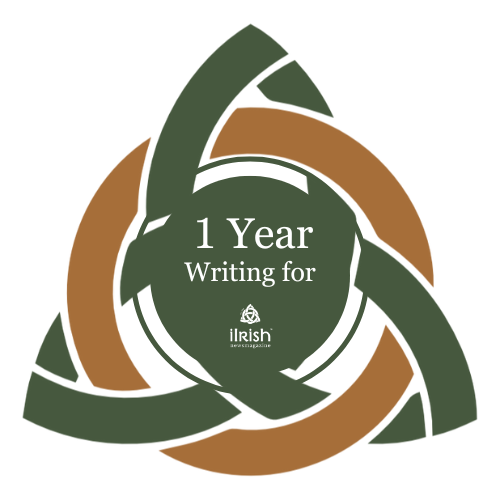In September I went to Wexford to listen to Claire Keegan talk about writing. Her subject was “how dialogue works,” and over three mornings she led us – some forty Keegan enthusiasts—through short stories by Flannery O’Connor, Anton Chekhov, Raymond Carver, and John McGahern. Keegan interrogated the texts – and us. However unpretentious and unimposing she seemed –climbing up on a sill to adjust a noisy window, offering her sweater to a participant—Keegan is a fiercely exact reader and uncompromising in her opinions on how and what literature can do, and should do.
Claire Keegan holds a set of aesthetic values that are not universal — no such thing exists in the world of art or literary criticism anymore – but are exactly suited to her place, time, and subject as an Irish woman in post-romantic, twenty-first century Ireland. If such a description sounds like a limitation, it treads the question of whether what is local can transcend that particularity.
Small Things Like These
As her novel, Small Things Like These, continues to win acclaim, its popularity bolstered by the recent film with Cillian Murphy, it pushes us to ask how the enormous atrocity it reveals can be depicted with such restraint. For a slim book, it is an incredible task, and it is one that Claire Keegan meets.
Because Keegan’s book upsets the national self-image, let alone the ecclesiastical one, Small Things Like These is very, very important. By interspersing her character’s painful, half-known past with the willful blindness that his present-day family and friends need to preserve their happiness, Keegan’s novel enacts its harrowing judgment of complicity.
Yet even this judgment is sympathetically qualified: can these relatively powerless entrants to barely secure economic circumstances rectify what nearly unassailable institutions have done? Small Things Like These is a Christmas story. Not far from the convent where young women are malnourished and maltreated, a man simply wants to buy his wife the pair of shoes she admires.
But this is not the Gift of the Magi, O’Henry’s tale of how a husband pawns his watch to buy his wife a comb for the beautiful hair she has cut and sold to buy him a watch chain. Nor is it A Christmas Carol, where one stone-hearted malefactor can reverse a lifetime of miserliness when he sees the difficulties of a crippled child. Rather, Small Things Like These belongs on the shelf next to Joyce’s The Dead as a rival achievement in picturing a world of insularity and banter, albeit one where the consequences of obtuseness are infinitely more devastating.
First, a digression. Most every cab driver in Ireland is expectedly loquacious, but none of my drivers talked stout and football. Instead, I heard about why Leo Varadkar really stepped down from the driver whose daughter knew his mother, and what the Northern Irish really think about Brexit, courtesy of a driver’s second cousin.
Most interesting to me as a Galwegian descendent was a discussion of the controversy about what to do with the body of Bishop Eamon Casey, who is interred in a crypt in Saint Nicholas’s Cathedral in Galway. The story of Bishop Casey is infamous from the 1990s: he fathered a child with an American woman, never tried to meet his son, and when he was exposed, resigned his office.
He was permitted to serve as a missionary in Ecuador and at a parish in England. His story re-emerged in 2006 and 2019, when he was subsequently accused of other sexual abuse, notably by his niece. Sadly, for observant Irish Catholics who once supported Casey’s progressive social agenda, his case deepened despair about their allegiance.
Now the point of my digression concerns our discussion about whether the Diocese of Galway should allow Bishop Casey’s body to remain buried in the Cathedral. I made a simplistic response: “why don’t you just dig him up and put him elsewhere?” “And where would he go?” said the driver, “who would take him?” and then, “Will we dig up every priest and nun who harmed a child?”
That silenced me. Just two months before my visit, barrister Mary O’Toole revealed the results of a government inquiry that identified over two thousand instances of historic abuse across some three hundred Catholic Schools.
Tuam Babies
In 2021, Catherine Corless published Belonging: A Memoir of Place, Beginnings and One Woman’s Search for Truth and Justice for the Tuam Babies. Tuam was the place in Galway where the remains of 796 babies had been discarded in an unused sewage tank, thrown out by the Bon Secours nuns who ran the mothers and babies home, a fact that Keegan cites in the book’s epilogue.
These babies were, as the euphemism went, “born on the other side of the blanket.” Enda Kenny did not mince words: the home was a “chamber of horrors.” How could every child be re-buried, every parent comforted, every dead perpetrator unearthed from holy ground?
“God’s help to those in need,” was the motto of the Bon Secours congregation. God help them, indeed, we might shrug, as some do in Keegan’s story, but not its protagonist, Bill Furlong. He knows his mother suffered and that somehow, he is the cause.
When similar suffering stands before him as he opens the door in the convent, he knows he must make the choice that will define him ever after. The novel ends without disclosing what cost Bill will pay for his response, but he will pay. He won’t be lifted shoulder high.
Claire Keegan taught that a novel could tell a story of enormous complexity with accessibility and brevity. It can drop the horror of past actions into the living present. It can pass the burden onto one who never personally committed a single wrong. A novel can show how trauma and shame trail the present until the time when it rears itself and makes its demands.
Claire Keegan perplexed our class when she told us to follow where a character’s feet are pointed. What were they walking away from or towards? The body moves to what beckons it, she explained, and consequences follow. The conscience is charged to act.




